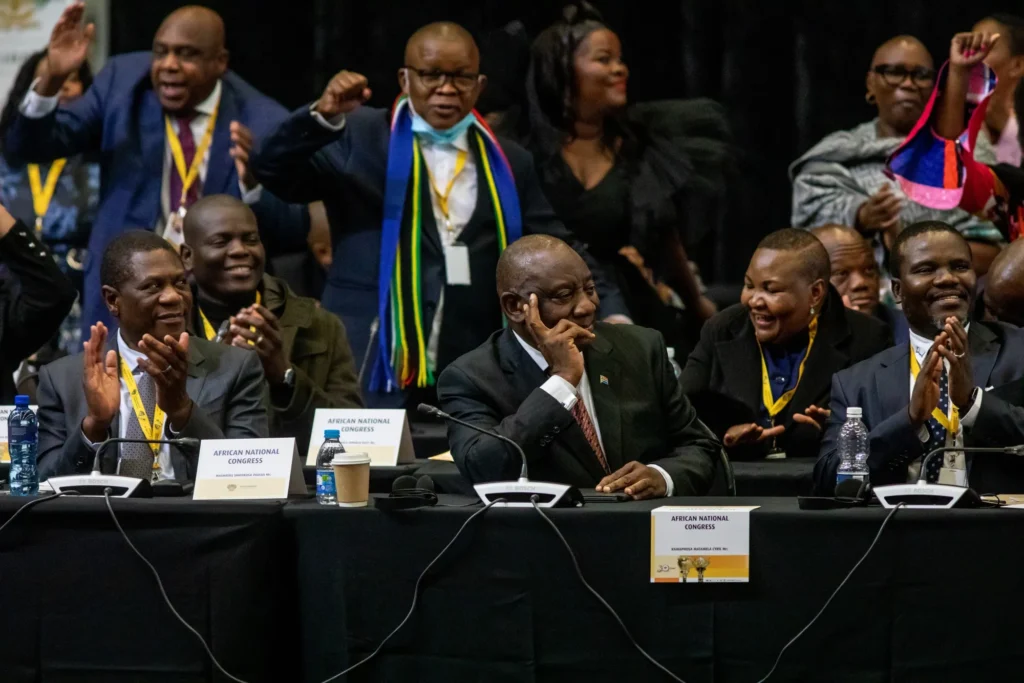South Africa’s Unstable Coalition: A Continued Partnership Amid Tensions
By Khanyisile Ngcobo
In a political landscape defined by contradictions, South Africa’s two largest parties, the African National Congress (ANC) and the Democratic Alliance (DA), find themselves tangled in an uneasy coalition known as the Government of National Unity (GNU). Established following the shift in power dynamics after last year’s elections, this coalition showcased a blend of discomfort and necessity as both sides recognized the potential ramifications of dissolving their partnership.
One year since the formation of the GNU, the collaboration has proven to be less than harmonious. Though both parties publicly present a united front, the private disagreements and tensions are palpable, resembling a toxic relationship fraught with disputes over policy directions and governance strategy.
The Origins of the Coalition
The GNU emerged when the ANC, historically significant as the party that led the nation to democracy in 1994, lost its parliamentary majority. In a surprising twist, the DA, traditionally a rival to ANC ideology, united with the ruling party, creating a coalition aimed at stabilizing South Africa’s complex political environment.
Last May, the collaboration appeared to strengthen when President Cyril Ramaphosa and DA leader John Steenhuisen stood together during a contentious meeting with US President Donald Trump. Their joint defense against false claims targeting South African farmers showcased the utility of the GNU, instilling a degree of hope in South African voters and reassuring the business community of a semblance of stability.
The Cracks Begin to Show
Despite occasional displays of solidarity, ongoing disputes threaten the fabric of this coalition. The recent dismissal of Andrew Whitfield, a DA deputy minister, highlighted the discord within the partnership. Steenhuisen publicly expressed his discontent, criticizing Ramaphosa for pushing through legislation deemed detrimental to South Africa’s economic growth, including controversial land expropriation policies.
Steenhuisen accused the ANC of neglecting collaboration by instituting policies without proper consultation, asserting that this lack of communication could alter the relationship dynamics further. “This was done without even the common courtesy of informing the fellow partners in the government of national unity about his intention to do so,” he declared.
Implications for Governance and Voters
Political analysts warn that the inherent ideological divides between the ANC and DA could render the GNU even more contentious. Dr. Levy Ndou emphasized that the parties’ core differences would persist, manifesting as a source of continuous friction. “The ANC will always want to push the transformation agenda, while the DA will persist with resistance,” he explained.
In a recent press release, Steenhuisen indicated that the DA was losing faith in Ramaphosa’s capacity to lead both the ANC and the GNU effectively. There are fears that should tensions escalate, a breakdown of the coalition could lead to significant voter backlash against both parties.
Table of Key Coalition Developments
| Event | Date | Impact |
|---|---|---|
| Formation of GNU | May 2022 | ANC and DA collaborate to stabilize governance. |
| Whitfield’s Dismissal | March 2023 | Intensification of conflict between ANC and DA. |
| FDA Expropriation Law | June 2023 | Global investor concerns raised, affecting South Africa’s economy. |
Looking Ahead
As South Africa approaches local government elections, both the ANC and DA must navigate their complicated partnership and argue for their respective governance philosophies without completely alienating the other. The future success of this coalition may depend on whether the leaders can effectively address their communication breakdown and commit to collaborative politics.
At this juncture, it remains evident that the GNU is essential for maintaining political stability, yet it is also at risk of becoming an untenable arrangement if the parties cannot reconcile their differences. As the political landscape evolves, observers will be keen to see if these parties can reach common ground or if ultimately, their ideological differences will lead them to a point of no return.


